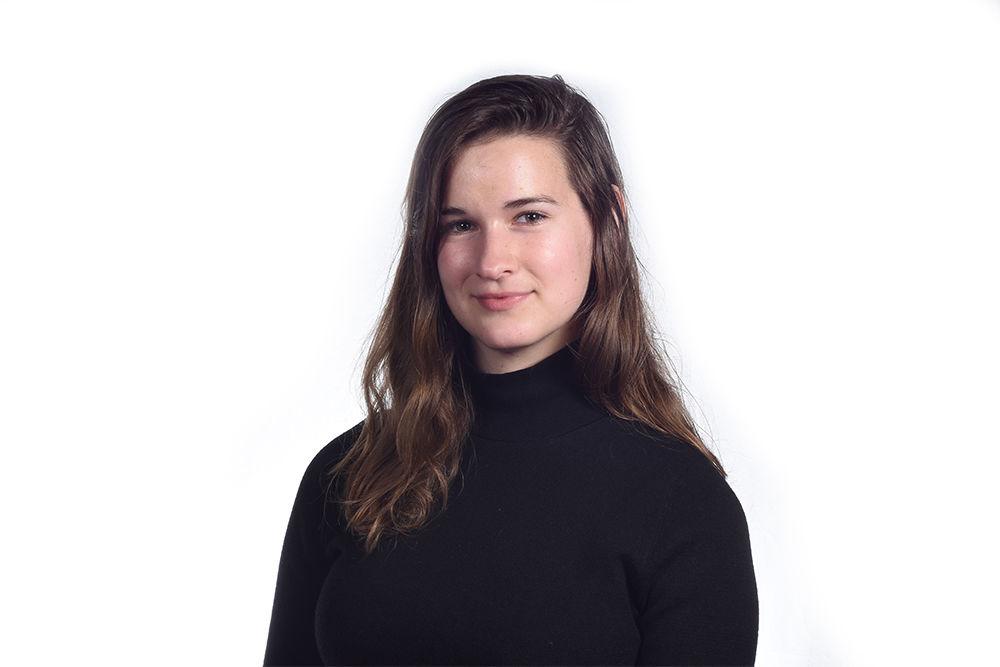I was the weird kid in middle school who went to Tuesday night sewing classes with a dozen or so older women. They talked about their grandchildren or the latest gossip, hands steadily guiding their latest quilting project through a beloved sewing machine, and I watched intently to make the hobby my own.
I never considered making the hobby into a career. I knew NC State had a textiles program or at least offered courses, but I always associated that with working in a factory or, at the most, overseeing a factory. There are people who design clothes, people who sew clothes and that’s about it, right?
As it turns out, the world of textiles has evolved tremendously and programs like ours at NC State continue to spin innovation into the industry. The textiles industry is making a comeback in the United States after a tough decline; while 900,000 jobs were lost in textiles between 1994-2005, there has been a 39 percent increase in exports from 2009-15.
Factories are reopening, operated by fewer people, but with rapidly increased production. Ever heard of textile engineering or textile technology? These are two degrees in the College of Textiles that give students the knowledge of material sciences and the production process they need to create more efficient and improved methods.
The College of Textiles at NC State has a great deal to boast about. First and foremost, it is the number-one recognized textiles institution in the world. Its Nonwovens Institute is the largest public/private research institute in the nation with an annual budget of $10 million.
With 1,200 students and 56 faculty members, there are sure to be incredible projects and research born out of this globally recognized facility.
My perception of textiles as an industry and future career field changed when I stepped on Centennial Campus last fall for the Threads Senior Collection fashion show that showcased students in the fashion and textile management program, and again this spring when I visited the exhibit displaying work from fashion and textile design students in the Emerging Designer Showcase.
I asked Carly Kvietok, a Park Scholar entering her third year in the fashion and textile design program, why she chose to enter the textiles industry. “I had always been interested in design and fashion,” Kvietok said. “But once I heard about the B.S. degree and how I would be able to combine my studio classes with STEM classes for a degree, I was hooked.”
She went on to tell me her plans after graduation. “I see myself possibly working in NYC for a fashion brand, and then longer term, I want to start my own womenswear line.”
“People will always need clothing, textiles are everywhere, and the possibilities are endless … nonwovens, wearable technology and sustainability initiatives in the fashion industry excite me for the future of this industry.”
When I think about everything that textiles encompasses, I continue to be amazed. It’s not just clothing that has to be designed and made, but it’s actually every type of woven fabric or cloth. Just think of all the fabric material you use daily: towels, shoes, sheets, socks, gloves, scarves, tablecloths, furniture, carpet, etc.
All of these items and more are made in many different ways with various types of materials to go inside of our homes or on our bodies, and the technology that is developing around all of it is seriously awesome, to say the least.
Who decides what the U.S. military should wear in combat, what Olympic athletes wear on their quests for medals and what your future newborn baby should wear at night? None other than innovators in the textiles industry who live out the meaning of “think and do.”
It’s the NC State students who go on to solve the problem of frigid weather conditions with high-tech sleeping bags, tents and insulated clothing that will keep you cool in a North Carolina summer.
And let’s not forget, Gal Gadot has her costume designers to thank for looking incredible while doing highly aerobic superhero butt-kicking.
As for me, I can’t think of a reason not to pursue a career in the textiles industry. It’s turning out to be more than my grandma taught me.














